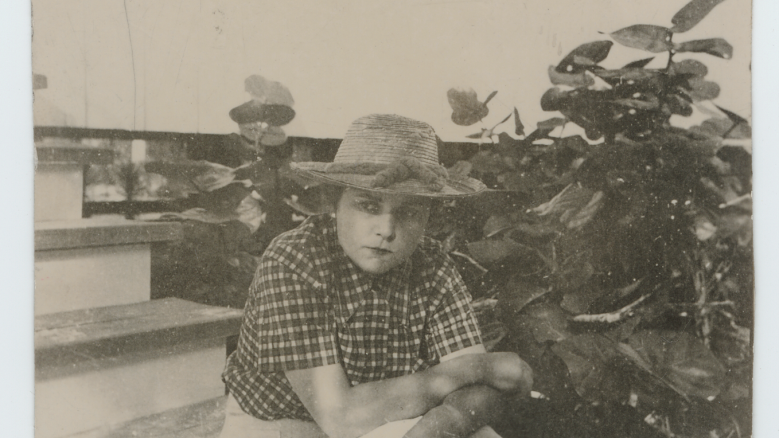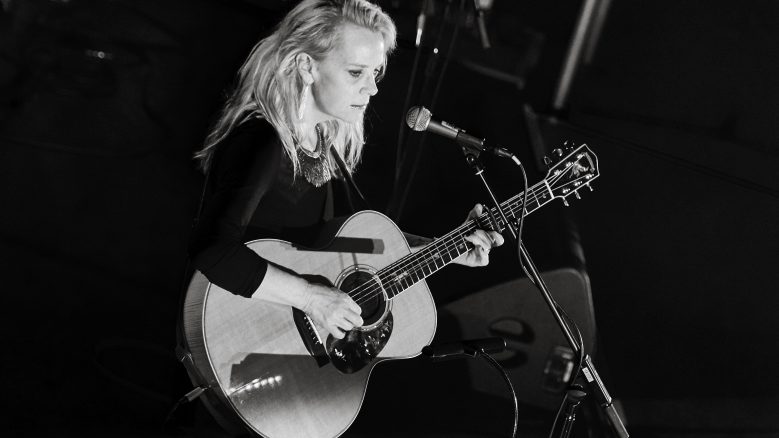Host Elisa New, journalist Katie Couric, media leaders Sheryl Sandberg and Yang Lan, musician Mary Chapin Carpenter, poet Gregory Orr, and psychiatrist Richard Summers discuss Bishop’s masterpiece on loss.
Interested in learning more? Poetry in America offers a wide range of courses, all dedicated to bringing poetry into classrooms and living rooms around the world.
by Elizabeth Bishop
The art of losing isn’t hard to master;
so many things seem filled with the intent
to be lost that their loss is no disaster.
Lose something every day. Accept the fluster
of lost door keys, the hour badly spent.
The art of losing isn’t hard to master.
Then practice losing farther, losing faster:
places, and names, and where it was you meant
to travel. None of these will bring disaster.
I lost my mother’s watch. And look! my last, or
next-to-last, of three loved houses went.
The art of losing isn’t hard to master.
I lost two cities, lovely ones. And, vaster,
some realms I owned, two rivers, a continent.
I miss them, but it wasn’t a disaster.
—Even losing you (the joking voice, a gesture
I love) I shan’t have lied. It’s evident
the art of losing’s not too hard to master
though it may look like (Write it!) like disaster.
The art of losing isn’t hard to master;
so many things seem filled with the intent
to be lost that their loss is no disaster.
Lose something every day. Accept the fluster
of lost door keys, the hour badly spent.
The art of losing isn’t hard to master.
Then practice losing farther, losing faster:
places, and names, and where it was you meant
to travel. None of these will bring disaster.
I lost my mother’s watch. And look! my last, or
next-to-last, of three loved houses went.
The art of losing isn’t hard to master.
I lost two cities, lovely ones. And, vaster,
some realms I owned, two rivers, a continent.
I miss them, but it wasn’t a disaster.
—Even losing you (the joking voice, a gesture
I love) I shan’t have lied. It’s evident
the art of losing’s not too hard to master
though it may look like (Write it!) like disaster.
Used by permission of Farrar, Straus and Giroux: “One Art” from THE COMPLETE POEMS 1927-1979 by Elizabeth Bishop. Copyright © 1979, 1983 by Alice Helen Methfessel

Elizabeth Bishop’s childhood was spent between Massachusetts and Nova Scotia, and these regions have an enduring legacy in her poetry. Courtesy of the collection of Elisa New

Elizabeth Bishop is now cherished as one of the greatest American poets of the 20th century. Her poem “One Art” is regarded as her masterpiece. (Photo Credit: Louise Crane and Victoria Kent Papers. Yale Collection of American Literature, Yale Beinecke Rare Book and Manuscript Library)

"Being a musician for the last 30 years, I've been on the road. I feel like I've spent my life on a big tour bus with my face pressed against the window at every stop looking around going, could I live here? And it's that sense of always looking for home, and not sure where it is." - Mary Chapin Carpenter (Photo Credit: Jonathan Stewart)

In the poem, the vaster loss of a continent stands in for the loss of Bishop's lover, Lota de Soares, with whom she lived in Brazil for fifteen years. They shared a home in Petrópolis, north of Rio de Janeiro. (Image used under license from Shutterstock.com)

Readers have debated what the final line of the poem means, including guest Katie Couric, who told us, "I think the most significant line in this whole poem is what's in parentheses in the very last line: (Write it!)."